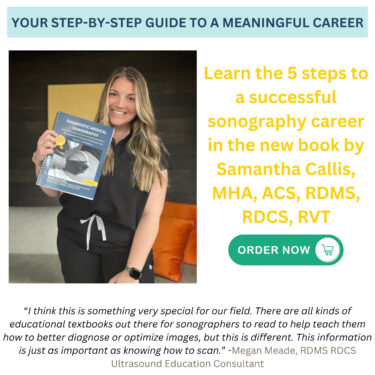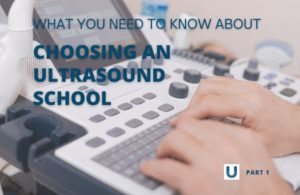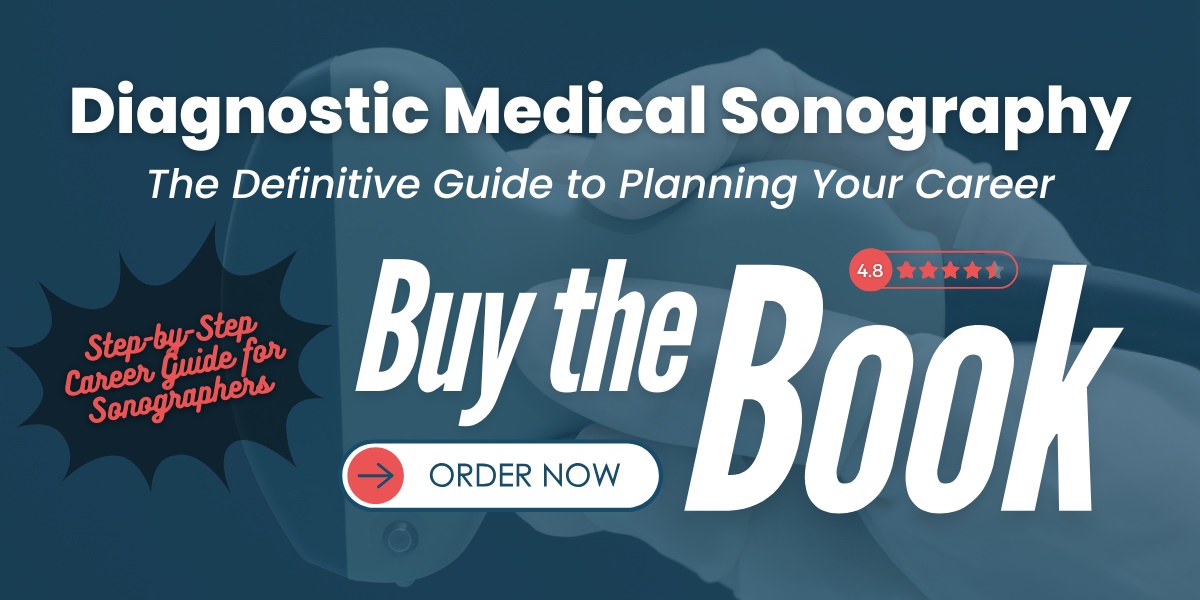An Associate Degree in Diagnostic Medical Sonography is a program designed to prepare students for entry-level positions in the field of sonography. The degree provides students with a varied skill set, enabling them to successfully image organs and other body components for diagnoses, pregnancy monitoring, and other medical purposes.
An Ultrasound Technician Associate Degree program is a mixture of course work and clinical rotations. Students who graduate with an Associate Degree from one of the Commission on Accreditation of Allied Health Education Programs (CAAHEP) are eligible and equipped to write the American Registry for Diagnostic Medical Sonography (ARDMS) exam. This will allow them to receive the RDMS crededential which is either highly preferred or required by cliniubcs and hospitals hiring professional sonographers.
Houston Career Institute
Houston Career Institute
Las Vegas College
Las Vegas College
Penn Foster
Penn Foster
Is an Associate Degree Enough?
- Prepares you for entry level sonography positions
- Provides a solid foundation from which to build a career
- Able to sit for ARDMS credential if program is CAAHEP accredited
- Program is typically completed in two years
- Gain marketable skills in diagnostic medical sonography
Prerequisites for Entering an Associate Degree Program
 The prerequisites for an Associate of Science in Diagnostic Medical Ultrasound or Sonography depend on the ultrasound school you are planning on attending. Some colleges/universities only require candidates to have their high school diploma/GED. Other programs require college-level courses in biology, English, medical terminology and/or physics in addition to a high school diploma.
The prerequisites for an Associate of Science in Diagnostic Medical Ultrasound or Sonography depend on the ultrasound school you are planning on attending. Some colleges/universities only require candidates to have their high school diploma/GED. Other programs require college-level courses in biology, English, medical terminology and/or physics in addition to a high school diploma.
It is not unusual for a sonography degree program to require documented and verifiable volunteer hours in an ultrasound clinic, as well as TEAS, TOEFL, and other entrance exams.
Occasionally Associate Degree programs may require a previous degree in an area related to patient care such as radiological technology, occupational therapy or registered nursing, or a Bachelor’s degree in any major.
When applying for an Ultrasound Associate program, be sure to clearly understand the necessary prerequisites a particular school requests and submit all required transcripts, standardized test scores and letters of reference.
Online Degree in Sonography
Most accredited programs don’t offer an associate degree in sonography online (although a few select courses may be available). Because becoming an ultrasound tech requires so much hands-on learning, simulation training, and lab work, an online environment wouldn’t give a student the same learning experience as the classroom. However, there are some available programs for those who are already in the sonography field.
Program Accreditation
There is plenty to evaluate when considering which program to attend. The most important things in people’s minds are often cost, location, and length of program, and whether or not the student will be accepted. Perhaps one of the most important things to consider is if the program is accredited.
The most widely recognized and highly regarded accrediting agency for Sonography programs is the Commission on Accreditation of Allied Health Education Programs (CAAHEP). Students pursuing their Associate Degree can search for accredited allied health programs in their state through the CAAHEP and their online tools.
There are other accrediting agencies as well, often specified towards the area of study. For example, radiology programs might be certified by the American College of Radiology (ACR). Additionally, there are other local and state credentials students can earn as they work towards their Associate Degree.
If you attend and complete your education at an institution recognized by the CAAHEP, you are also eligible to sit for the exam offered by the American Registry for Diagnostic Medical Sonography (ARDMS). The RDMS credential is usually preferred or required by employers, although some will have the provision that ARDMS accreditation can be obtained within the first year of employment.
Tuition and Fees
Associate degrees are generally two-year programs, and as such offer an affordable way to obtain a degree in a highly marketable field. Note that program completion times may vary depending on specific program requirements. Costs can vary widely depending on the school, ranging from around $10,000 to as high as $40,000. Community colleges are usually the most affordable, while for-profit institutions tend to be the most expensive.
The Consumer Financial Protection Bureau provides a useful tool, free of charge, that can help you compare the true costs of your education and learn about potential financial aid opportunities.
Career Outlook
As our population ages, healthcare needs are growing at a rapid pace. Employment opportunities for sonographers, as well as most other fields within medical imaging healthcare, are increasing as well. In its 2021 publication, the Bureau of Labor Statistics predict 15% sonography job growth between 2021 and 2031, which they define as “much faster than average”.
It’s Never too Late to go Back to School!

Whether you’re a parent looking to get back in the workforce or an adult wanting to change careers, it’s never too late to pursue your education!
One of the advantages of returning to school when older is that the student tends to be more purpose-driven and thus will be able to benefit more fully from the education they are receiving. They will be able to apply the new knowledge to the greater wealth of experiences and lessons they’ve already had or acquired.
Curriculum for Ultrasound Associate Degrees
An Associate in Diagnostic Medical Ultrasound or Ultrasound Technology comprises of coursework that delves into biology, physics, medical terminology, ultrasound imaging and patient care. More specifically, as an Ultrasound Associate Degree student, you will learn about anatomy and physiology, the principles behind sonographic imaging, how to use each of the essential ultrasound machines, and the psychological behavioral sciences that involve interacting with patients.
You will likely also gain valuable, hands-on clinical experiences by working in a hospital or health center. You could potentially work there after graduation as well. Some Ultrasound Associate programs also allow you to specialize in one specific area, such as vascular technology, echocardiography or general sonography (abdomen-extended, obstetrics and gynecology).
Associate Degree FAQs
Will an Associate degree in ultrasound qualify me for ARDMS certification?
Yes. As per ARDMS’ Prerequisite 1, anyone who has completed a two-year allied-health program, including a diagnostic medical sonographer/ultrasound program, along with 12 months full-time clinical ultrasonography experience, is eligible to write the ARDMS certification exam. Graduating from a CAAHEP accredited program will mean that you can take the exam, likely before you graduate.
What jobs can I get with an Associate in Sonography?
An Ultrasound Associate Degree helps qualify you for an entry-level sonographer position. There are many ultrasound technologist specializations within the field that offer different job opportunities, and it would be worthwhile to explore the options before you begin your education. Depending on where you apply, there may be several similar job titles.
According to the ARDMS (American Registry for Diagnostic Medical Sonography) you can become certified as:
- Registered Diagnostic Medical Sonographer (focusing on the abdomen, breast, obstetrics & gynecology and/or the nervous system).
- Registered Diagnostic Cardiac Sonographer (focusing on adult, fetal and/or pediatric echocardiography)
- Registered Vascular Technologist (focusing on cerebral and peripheral vascular systems)
Is an Associate degree enough to make me a competitive job candidate?
Yes. An Associate degree coupled with your RDMS ceedential and exemplary feedback from your clinical rotations can make you a very successful job candidate in a field that is expected to experience 15% growth within the next decade (Source: Bureau of Labor Statistics).
Typically higher education, such as a Bachelors Degree in Ultrasound, is recommended for those who wish to further their careers to leadership/managerial roles.
Additional Resources
U.S. Bureau of Labor Statistics
Commission on Accreditation of Allied Health Education Projects
American Registry for Diagnostic Medical Sonography
Consumer Financial Protection Bureau


 Admittance to an accredited ultrasound school is a competitive progress. Our 3-part article series on
Admittance to an accredited ultrasound school is a competitive progress. Our 3-part article series on 